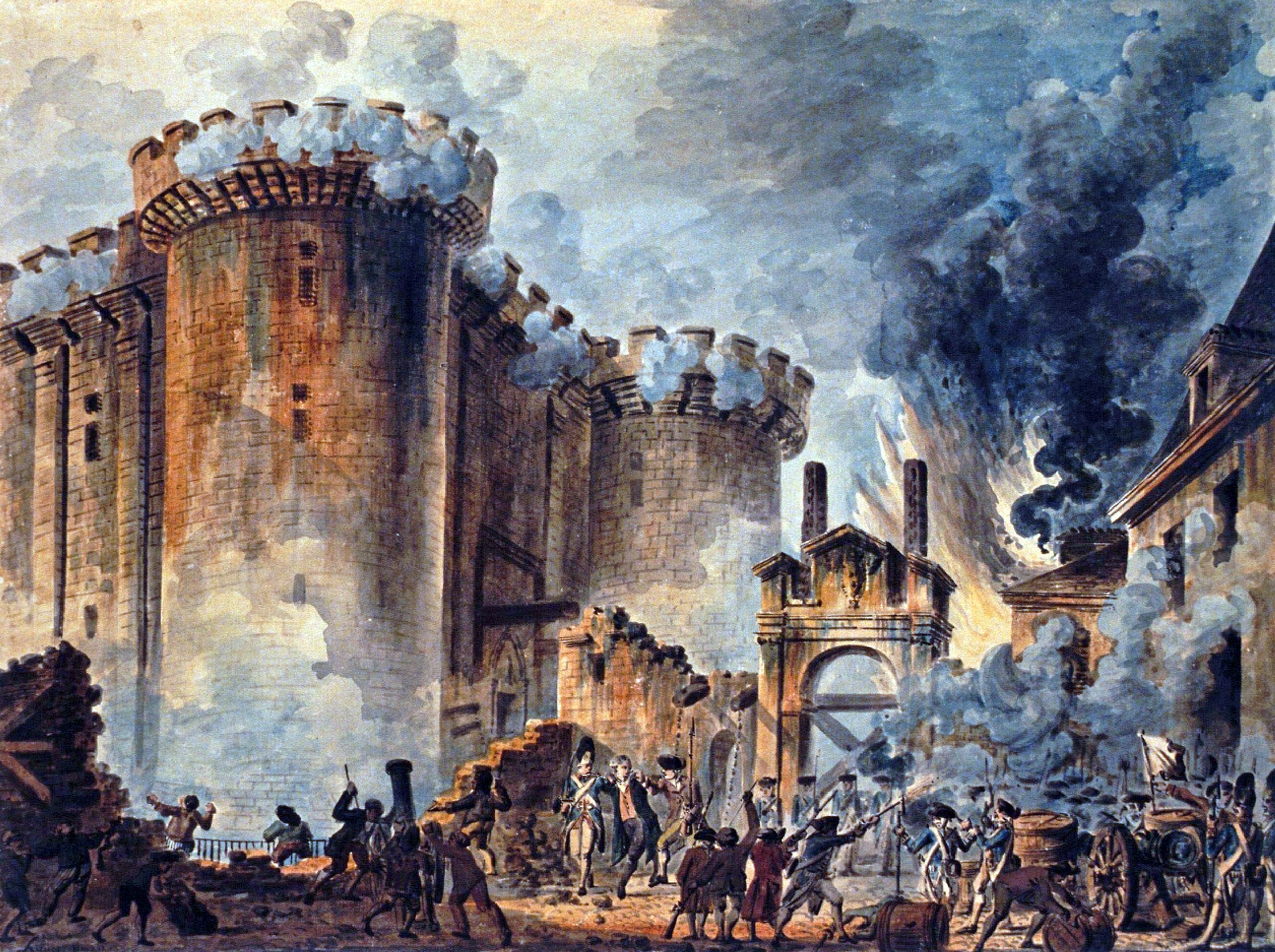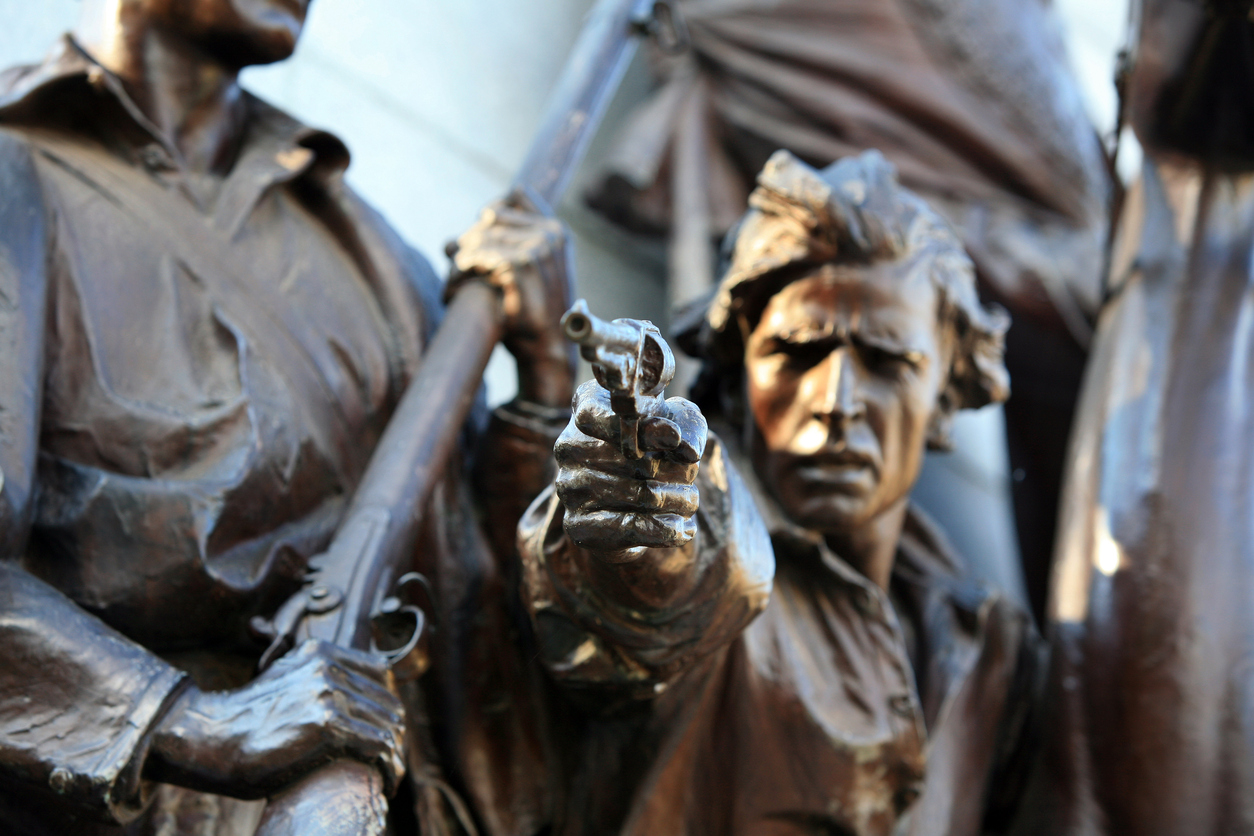Without stronger individual character and deeper social cohesion, Americans are poised to stumble away from revival and into revolution.
Consensus As Surrender

The era of Progressive mythology is over.
What’s worse than a Cold War? The knee-jerk answer would be a hot war—and as far as it goes, that’s correct. World War III, fought between the U.S. and Soviet Union and their allies, would have been costlier in every sense than the Cold War we actually had. But something else is worse than a Cold War, too: surrender.
European civilization was in ruins after World War II, vulnerable to being remade by Communist subversion or Stalin’s armies. A Europe in which Communism was the dominant power would have meant a world in which America’s own liberty would not have been secure, not so much because the United States would have been an easy target for invasion, Red Dawn-style, but because the already considerable influence of Communism, Marxism, and fellow-traveling forms of leftism in our country would have been augmented by the tide of events beyond our shores. And to resist a stronger Communism at home as well as abroad might well have required a sterner, less classically liberal anti-Communism. The Cold War was expensive, but not as expensive as the alternative could have been.
What Angelo Codevilla has aptly described as our Cold Civil War is quite different from the struggle with Communism, but here too the alternative is something worse—a loss of self-government and the substitution of an administrative elite’s will and whim in place of freedom and truth. If that sounds dramatic, progressives themselves should stop to think about the nature of administrative bureaucracy—they should look back to Kafka, or to any of the great books written by authors who had first-hand experience of life under hard socialism. Ideological discipline and popularly unaccountable technocracy are the essential ingredients for more than one kind of oppression.
The Cold Civil War, like the original Cold War, has to be fought, and even in the fighting itself, there is virtue to be found: in the spirit to resist the social pressure that the left brings to bear in its attempts to transform American life, for example, and in having to clarify one’s own principles and character in the course of the clash with one’s opponents. This is, in fact, one of the basic advantages of free and open politics. It’s not “tribalism” or “polarization” if people with fundamentally different points of views actually—gasp!—disagree with one another, strongly, and try to advance their own beliefs while checking the power of their opponents. The Cold Civil War is not always “civil,” unfortunately, but it is an honest conflict.
One side, however, doesn’t like that: it prefers to fight its battles covertly, under a facade of peace and consensus.
The fact that such a facade can no longer be maintained is what drives many on the left to emotional extremes and outraged protest. Ryan Williams has very properly noted not only the intensity of the political brawl over Brett Kavanaugh but the underlying preference among progressives for will—namely their own will—over the Constitution, which is what makes battles over Supreme Court nominations so desperately important for them.
Progressives are not averse to winning elections when they can, but elections are secondary: what’s most important is to control attitudes and shape understanding, at both the elite and popular levels (each in its own way), so that regardless of who wins elections, regulators and judges can ensure that history keeps moving in the direction of pre-determined progress. Note the threatening tone of progressives’ rhetoric about being “judged by history” and the danger of being found “on the wrong side of history.” The threat is a moral one—it’s psychological intimidation, which makes the exercise of power, by those whose wills dominate, much easier.
Progressives are angry and taking to the streets because the myths they have relied upon to keep Americans docile are starting to lose their hold on the public mind. Social science and technocracy no longer earn easy deference from the uncredentialed—and it’s notable that “education” is one of the dividing lines not only between progressives and Trump voters but, among Republicans, between Trump voters and the NeverTrump faction. A voluble NeverTrump Republican who recently defected to the Democratic Party, Tom Nichols, even wrote a book bewailing in its title The Death of Expertise.
The myth of an enlightened, non-political Supreme Court which discovers new rights and powers through “emanations” of the Constitution has also been debunked: what progressive justices in fact practice is not scholarly (or wizardly) exegesis of a living, evolving document, but pure and simple politics, as surely as any elected official. Now that this myth is being openly refuted by the right, the left is having to resort to the toughest tactics in confirmation battles. The engineered moral consensus on which progressives relied to get the right sort of people onto the Supreme Court, and to keep the wrong sort of people off, has broken down.
The right, in other words, has stopped surrendering and is now fighting the Cold Civil War. Progressive subterfuges and subtle forms of intimidation no longer work, so the left takes to the street and strips off its mask of rationality: what we see from the steps of the Senate to the streets of Portland is naked rage, and not a little despair. As ugly as it may be, however, it’s a truthful image, unlike the appearance of benevolent rationality that progressives like to affect when they are confident in their power.
Williams is right: the Cold Civil War will have a winner and a loser. The outcome is not predetermined by history. Principled differences, and the way those differences are championed, matter. This is good news for conservatives, even if they wish this war did not have to be fought. Just by defying the myths that the left relies upon to control without conflict, they achieve a victory. The proof of that is in the apoplectic reaction we see on the left whenever its exponents realize they can no longer rule through manufactured consensus.
The American Mind presents a range of perspectives. Views are writers’ own and do not necessarily represent those of The Claremont Institute.
The American Mind is a publication of the Claremont Institute, a non-profit 501(c)(3) organization, dedicated to restoring the principles of the American Founding to their rightful, preeminent authority in our national life. Interested in supporting our work? Gifts to the Claremont Institute are tax-deductible.
An argument lost.
On the gloating and the gloaming.
First, focus fire on America's radical fifth column.
The vindication of "The Flight 93 Election"?





